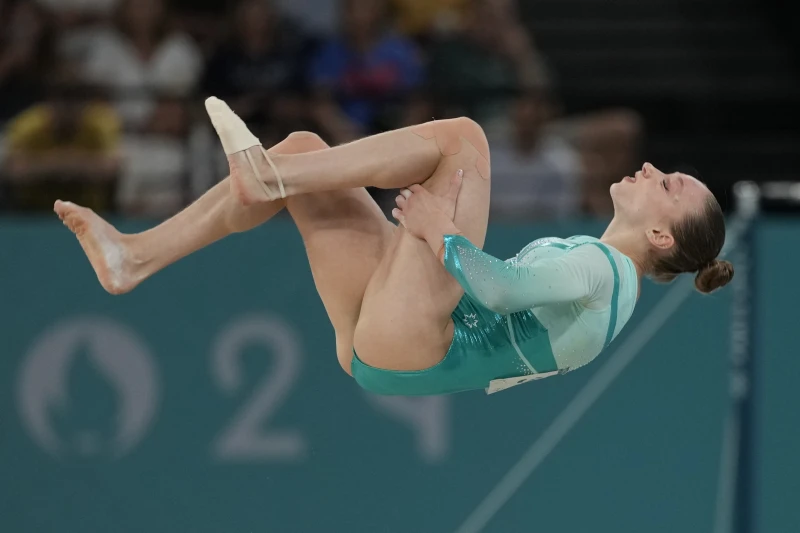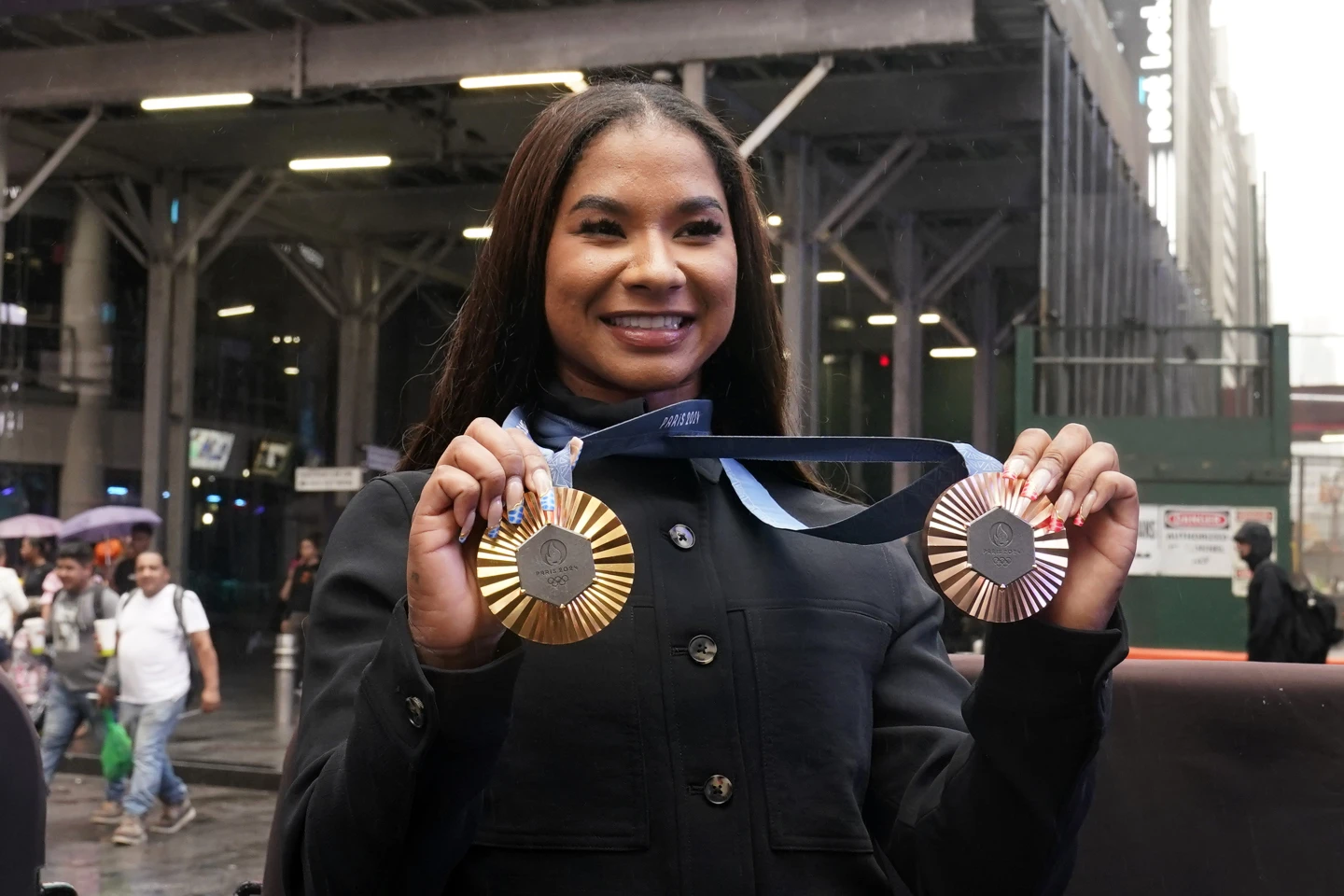U.S. Olympic officials are challenging a court decision that requires American gymnast Jordan Chiles to give back the bronze medal she won for the floor exercise at the Paris Olympics.
The Court of Arbitration for Sport (CAS) canceled an appeal by Chiles’ coach that had moved her to third place. CAS said the appeal was made 4 seconds after the 1-minute limit for scoring inquiries.
USA Gymnastics disagreed with the timing. In a statement on Sunday, the agency said it provided video evidence to CAS showing that coach Cecile Landi made her appeal 13 seconds before the deadline.
“The time-stamped, video evidence submitted by USA Gymnastics Sunday evening shows Landi first stated her request to file an inquiry at the inquiry table 47 seconds after the score was posted, followed by a second statement 55 seconds after the score was originally posted.”
This dispute over such small details could lead to a lengthy legal fight about the gymnastics scores.
The International Gymnastics Federation (FIG) announced on Saturday night that it would honor the court’s decision and award the third place to Ana Barbosu of Romania.
The International Olympic Committee confirmed the decision on Sunday and said it would reallocate the medal from Monday’s final.
“We firmly believe that Jordan rightfully earned the bronze medal, and there were critical errors in both the initial scoring by the International Gymnastics Federation (FIG) and the subsequent CAS appeal process that need to be addressed,” said the U.S. Olympic and Paralympic Committee in their statement.

CAS decided on Saturday that Team USA coach Landi’s request to add 0.1 to Chiles’ score was made outside the 1-minute window. CAS wrote that Landi’s appeal came 1 minute and 4 seconds after Chiles’ score was first posted.
The IOC said it will work with the USOPC about returning Chiles’ bronze and will coordinate with the Romanian Olympic Committee to arrange a ceremony to honor Barbosu.
“The initial error occurred in the scoring by FIG, and the second error was during the CAS appeal process, where the USOPC was not given adequate time or notice to effectively challenge the decision,” said a USOPC statement released on Sunday.
It is not clear what the exact steps for the appeal will be. The USOPC could choose to appeal either to Switzerland’s highest court, the Swiss Tribunal, or to the European Court of Human Rights.
CAS stated on Saturday that the original finishing order should be restored, with Barbosu in third place, Romanian Sabrina Maneca-Voinea in fourth, and Chiles in fifth.
The organization said the FIG should set the final rankings “in accordance with the above decision,” but left it up to the federation to decide who would receive the medal after gold winner Rebeca Andrade of Brazil and silver medalist Simone Biles of the U.S.
The FIG stated that it was up to the IOC to decide whether to reallocate the medal. The IOC confirmed on Sunday that it would follow FIG’s decision and work to get Chiles’ medal returned.
These swift changes add to what has been a challenging few days for all three athletes.
Romanian gymnastics legend and 1976 Olympic champion Nadia Comaneci expressed concern for Barbosu’s mental health because of the painful situation where she went from bronze medalist to fourth place.
“I can’t believe we play with athletes’ mental health and emotions like this… let’s protect them,” Comaneci posted on X earlier in the week.
Chiles hinted at the situation in an Instagram story on Saturday, saying she is heartbroken and is “taking this time and removing myself from social media for my mental health, thank you.”
U.S. teammates showed their support for Chiles, a two-time Olympian. “Sending you so much love Jordan,” American star Simone Biles posted on Instagram. “Keep your chin up ‘Olympic champ’ we love you.”
Barbosu and Maneca-Voinea finished with the same score of 13.700 in the floor final, placing them outside the medals. Barbosu believed she had won bronze over Maneca-Voinea based on a tiebreaker — a higher execution score — and started celebrating with a Romanian flag.
Chiles was the last to compete and was initially given a score of 13.666, which put her in fifth place, just behind Maneca-Voinea. Landi requested an inquiry into Chiles’ score after it was announced.

“At this point, we had nothing to lose, so I was like ‘We’re just going to try,’” Landi said after the awards ceremony. “I honestly didn’t think it was going to happen, but when I heard her scream, I turned around and was like ‘What?’”
The judges approved the appeal, moving Chiles ahead of Barbosu and Maneca-Voinea. After returning to Romania, Barbosu emphasized that she had no issues with Chiles.
“I only want for everybody to be fair, we don’t want to start picking on other athletes of any nationality,” Barbosu told reporters.
“We as athletes don’t deserve something like that, we only want to perform as best as we can and to be rewarded based on our performance. The problems lie with the judges, with their calculations and decisions.”
Chiles’ mother, Gina Chiles, responded to critics in a post, saying she was “tired” of the negative comments directed at Jordan.
“My daughter is a highly decorated Olympian with the biggest heart and a level of sportsmanship that is unmatched,” Gina Chiles posted. “And she’s being called disgusting things.”
The uncertainty also casts a shadow over what had been a special moment on the medal stand, when Chiles and Biles knelt to honor Andrade after the Brazilian star won her fourth medal in Paris.
